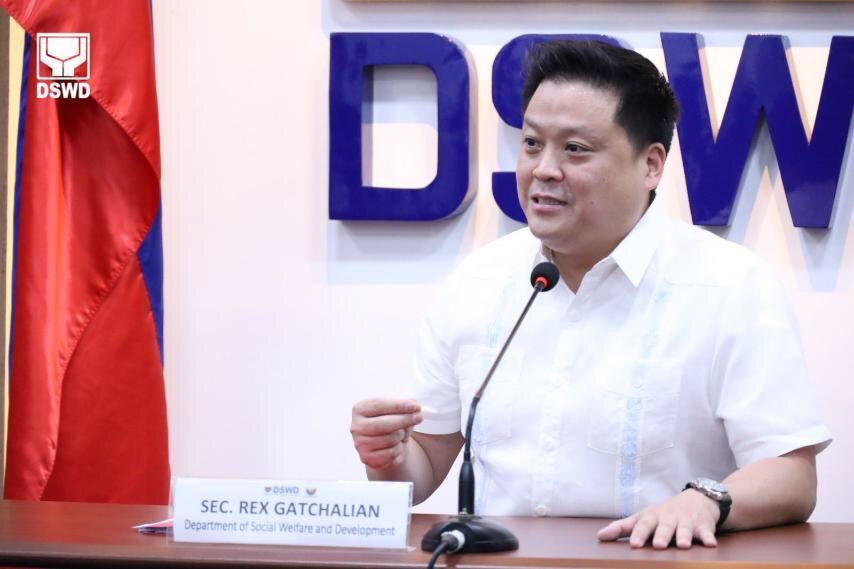'Kulang ang P21': Revisit food basket to strengthen gov't anti-hunger programs – DSWD chief

Department of Social Welfare and Development (DSWD) Secretary Rex Gatchalian said on Monday, Aug. 19 that there is a need to revisit the food basket composition and costs to ensure that the government's anti-hunger programs are more responsive to the needs of food-poor families.
During a press conference, Gatchalian admitted that the P21 food threshold set by the National Economic and Development Authority (NEDA) and the Philippine Statistics Authority (PSA) is insufficient.
“Due na rebisitahin yung food basket kung tawagin. It’s been 10 years since last na na-visit yung food basket. Hindi ko pwedeng pangunahan yun kasi trabaho yan ng FNRI (Food and Nutrition Research Institute) at ng DOH (Department of Health), sila yung mga eksperto diyan. Pero kaya naming sabihin na sa sarili naming opinyon, kulang yun (P21 food threshold),” he said.
(The food basket needs to be revisited. It has been 10 years since it was last reviewed. I cannot lead that effort because it is the job of the FNRI and the DOH, as they are the experts in this area. However, we can express our opinion that the P21 food threshold is insufficient).
He explained that revisiting the food basket and its estimated average cost would allow for updated data, which can be used to implement programs that better address the needs of food-poor families.
One such program is the DSWD’s “Walang Gutom 2027: Food Stamp Program (FSP).”
“Yung Food Stamp Program ay patunay na naniniwala kami na kailangan dagdagan natin kasi sa opinion namin at sa opinion ng ating mga case managers, mga social workers, kulang yung P21,” Gatchalian said.
(The Food Stamp Program is proof that we believe we need to increase it because, in our opinion and the opinion of our case managers and social workers, the P21 is insufficient).
The FSP is a flagship program of the DSWD aimed to combat involuntary hunger by providing beneficiaries with electronic benefit transfer (EBT) cards that will be loaded with P3,000 food credits to purchase a select list of nutritious food items.
In the scaled-up implementation of the FSP, approximately 300,000 households will receive EBT cards by the end of the year, with an additional 300,000 households joining the program in 2025 and another 400,000 in 2026, aiming to reach a target of 1 million household beneficiaries.
“Baka para talagang masugpo natin ang kagutuman, dapat mas bilisan natin yung pagpapalaki ng programa so that means, more budget allocation for the Food Stamp Program,” Gatchalian said.
(To effectively combat hunger, we need to accelerate the program's expansion, which means allocating more budget for the Food Stamp Program).
He also noted that the data which the DSWD gets from NEDA and PSA are being balanced using the social worker’s lens.
“Nilinaw naman ng NEDA na ang inilabas nilang food poor threshold ay isa lamang sa mga development indicators na ginamit nila. Sinabi nila na hindi rin naman ito ang gagamiting batayan para sa mga anti-poverty programs. Sa amin sa DSWD, ang data mula sa NEDA or PSA ay binabalanse naman namin with the social workers’ lens,” he explained.
(NEDA clarified that the food poverty threshold they released is just one of the development indicators they used. They also said that it will not be the sole basis for anti-poverty programs. For us at DSWD, we balance the data from NEDA or PSA with the social workers’ perspective).
Gatchalian cited the Pantawid Pamilyang Pilipino Program (4Ps) as an example of using this method to assess the well-being of its program beneficiaries.